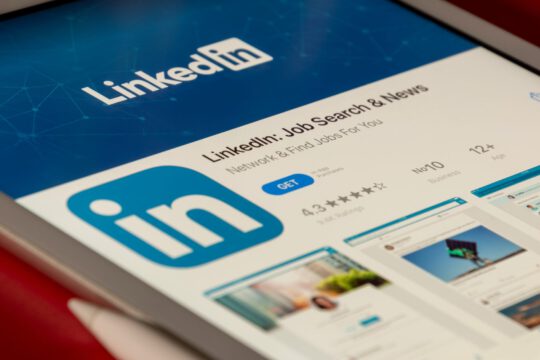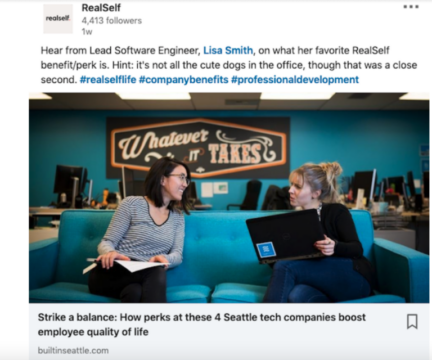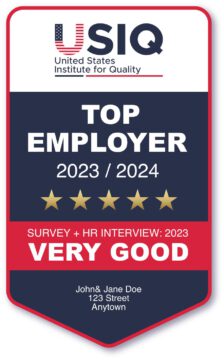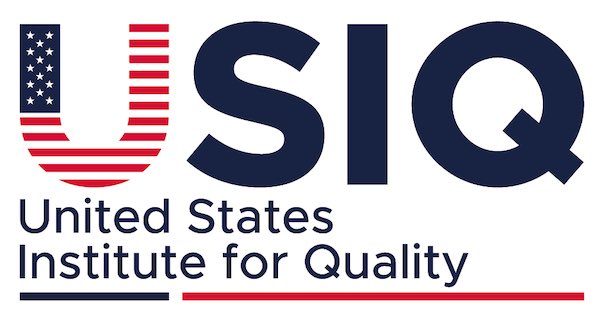Top 8 Current trends in HR marketing
The competition for top talent is getting stronger, and HR departments are discovering that more than old recruitment and retention techniques are needed. Companies now use creative HR marketing strategies to stand out and retain the best candidates.
In this blog post, we will explore the newest trends in HR marketing. This includes using social media and AI, balancing work and personal life, and promoting diversity, equity, and inclusion (DEI) in talent acquisition and management.
1. Embracing New-Age Recruitment Strategies

First on this list of trends in HR Marketing is recruitment strategies. Modern recruitment techniques surpass traditional methods in the race for top talent. Strategies centered around social media and social recruiting are proving to be highly effective. Companies are embracing these innovative approaches to reach a broader and more targeted pool of potential candidates.
Social platforms, particularly LinkedIn, with its large community of 1 billion professionals and focus on careers, offer recruiters invaluable opportunities. Instead of just posting job openings, companies can now pinpoint specific skills and experiences, connecting with exceptional candidates who may not even be looking for a job.
For example, companies like RealSelf use LinkedIn to highlight their culture and benefits, attracting candidates who align with their values.

84% of organizations are already leveraging social media for recruitment. By mastering this modern strategy, companies can secure top talent and position themselves for long-term success.
2. Upskilling & Reskilling Over Fresh Recruiting

Companies will focus more on developing their current employees than constantly hiring new ones. Teaching new skills for their current roles (upskilling) and different roles (reskilling) are crucial strategies for retaining talented staff members.
This change brings many benefits:
- Investing in Employees = Loyalty and Retention: A company can show its dedication to its staff by offering upskilling and reskilling opportunities. When employees feel appreciated and have chances to grow, they are more likely to stay, helping retain employees.
- Efficiently Bridging Skills Gaps: Finding the perfect candidate can be challenging. By enhancing the skills of current employees, companies save time and resources while quickly filling essential roles.
- Boosting Adaptability and Innovation: Continuous organizational learning leads to increased agility. This fosters innovation and enables the company to excel in a fast-changing business environment.
Research shows the significance of this shift. Businesses can save up to £36,084 per employee by upskilling rather than recruiting replacements – significantly cutting recruiting costs.
3. AI Will Help & Scale HR Marketing

AI is rapidly changing HR functions, impacting internal processes and HR marketing. Companies can use AI to make tasks easier, reduce bias, and gain insights to improve the employee experience and attract more job seekers.
Here is how AI boosts HR marketing efforts:
- Better Targeting: AI can review applicant data to focus on finding the best candidates.
- Personalized Communication: AI can help create tailored job postings and messages that meet candidates’ needs.
- Smart Employee Support: AI can review employee data to improve onboarding and training.
- Early Issue Detection: AI can spot signs of burnout or disengagement early on, allowing HR teams to solve problems.
- Productivity Boost: AI can handle repetitive tasks, giving HR teams more time to focus on essential HR marketing strategies.
Using AI, companies can offer a more personalized, data-driven experience for current and potential employees.
4. An Emphasis on Work-Life Fit for Employees

Employers must promote wellness to balance work and personal life. The increase in employees quietly disengaging because they feel overworked and unappreciated highlights the urgent need to address this.
Companies can support their employees in achieving a better work-life balance by taking these proactive steps:
- Helping Employees: Businesses can help employees’ well-being and professional growth by providing online training resources, telehealth solutions, and extensive benefits packages.
- Engagement Roles: Businesses can develop more engaging positions by revising job descriptions to concentrate on flexibility, engagement, and growth opportunities within the job.
- Career Development and Growth: Companies can demonstrate their dedication to employee growth by setting clear career paths and encouraging from within.
- Flexible work schedules: Businesses can demonstrate their appreciation of employees’ work-life balance requirements.
The importance of work-life balance is evident. Studies reveal that 72% of workers consider it a key factor when deciding on a job. By promoting initiatives that improve work-life balance, companies can position themselves as attractive employers and stand out in a competitive job market.
5. Exploring Alternative Employment Agreements

Companies need to adjust their budgets and talent strategies to keep up with changes in the workplace. At the same time, more professionals are looking for part-time, remote, or flexible work options.
Employers are exploring new employment methods, such as contract, freelance, and part-time roles, to counteract this. These approaches attract diverse talent, including retirees, caregivers, and specialized individuals.
Companies are also reconsidering job requirements and prioritizing skills to create opportunities for those without formal education or with previous involvement in the criminal justice system.
Here is how companies are using alternative employment strategies:
- Freelance Support: In 2023, 64 million Americans freelanced. Businesses can tap into this talent pool through freelance platforms, enabling them to enjoy expertise without full-time commitments.
- Part-time and Consulting Opportunities: These roles provide companies with experienced mid- and senior-level professionals.
- Skills-Focused Recruitment: By shifting the focus from degrees to skills, companies are broadening their talent pool and creating a more inclusive hiring process.
- Collaboration with Staffing Agencies: Partnering with temporary agencies simplifies the hiring process, especially for short-term projects or sudden workload increases.
6. Diversity, equity, and inclusion (DEI) as a Strategy

As our society becomes more diverse, businesses must embrace that diversity at all levels. Focusing on DEI (Diversity, Equity, and Inclusion) is important, particularly in leadership roles.
Companies that place a high value on DEI create a warm and welcoming workplace accessible to everyone. This leads to happier employees and substantial benefits in HR marketing for attracting top talent.
Here are a few ways that organizations can adopt DEI:
- Fair hiring practices are a great way to identify the top talent, regardless of where they came from.
- Set up strict rules against discrimination and bullying to ensure a safe and respectful environment.
- Encourage leaders to show DEI values in their actions and inspire positive changes to the culture.
- Provide training in diversity to help employees identify and address biases to ensure fair decision-making.
Companies that commit to DEI become sought-after employers, drawing more skilled candidates.
7. Feedback-Based Improvement from Employees

Companies will recognize that gathering employee feedback is crucial for tackling challenges, boosting engagement, and fostering continuous improvement. By valuing feedback from current, former, and potential employees, they invest in creating a workplace where every voice contributes to success.
Here is how companies use employee feedback effectively:
- Regularly Scheduled Surveys: Conducting regular surveys helps determine employee satisfaction and areas that require improvement.
- Exit Interviews: Understanding the reasons employees leave can support a positive change.
- Feedback from Candidates: Even feedback from candidates who were not selected can provide valuable insight into the hiring process.
- Meaningful Metrics: Monitoring satisfaction and feedback levels show employees appreciate their feedback.
- Open Communication: Enabling employees to voice their concerns increases trust and makes providing feedback an essential part of working.
This commitment to continuous improvement enhances the company’s reputation, attracts top talent, and nurtures employee loyalty.
8. More Seal of Approvals from Reputable Companies

Employer Seal: Top Employer
In today’s competitive job market, showing potential employees that your company is a great place to work is crucial. Certifications from respected organizations like the United States Institute for Quality (USIQ) are a wonderful way to enhance your company’s reputation as an employer.
USIQ certifications such as “Top Employer” and “Family-Friendly Employer” are granted based on rigorous standards and employee feedback. They demonstrate your commitment to fostering a positive work environment and provide valuable insights for making improvements.
Obtaining certification offers numerous advantages for your HR marketing efforts. It sets your company apart and attracts top talent seeking a supportive work environment. An endorsement from an external organization like USIQ adds credibility and builds trust with potential candidates.
Moreover, feedback from employee surveys offers practical suggestions for strengthening your employer brand. You can proudly showcase your certifications on your website and in marketing materials by displaying official seals of approval.
If you are eager to enhance your employer brand and stay ahead of the latest trends in HR marketing, contact USIQ. Discover how our certifications can position your company as a highly desirable workplace.

